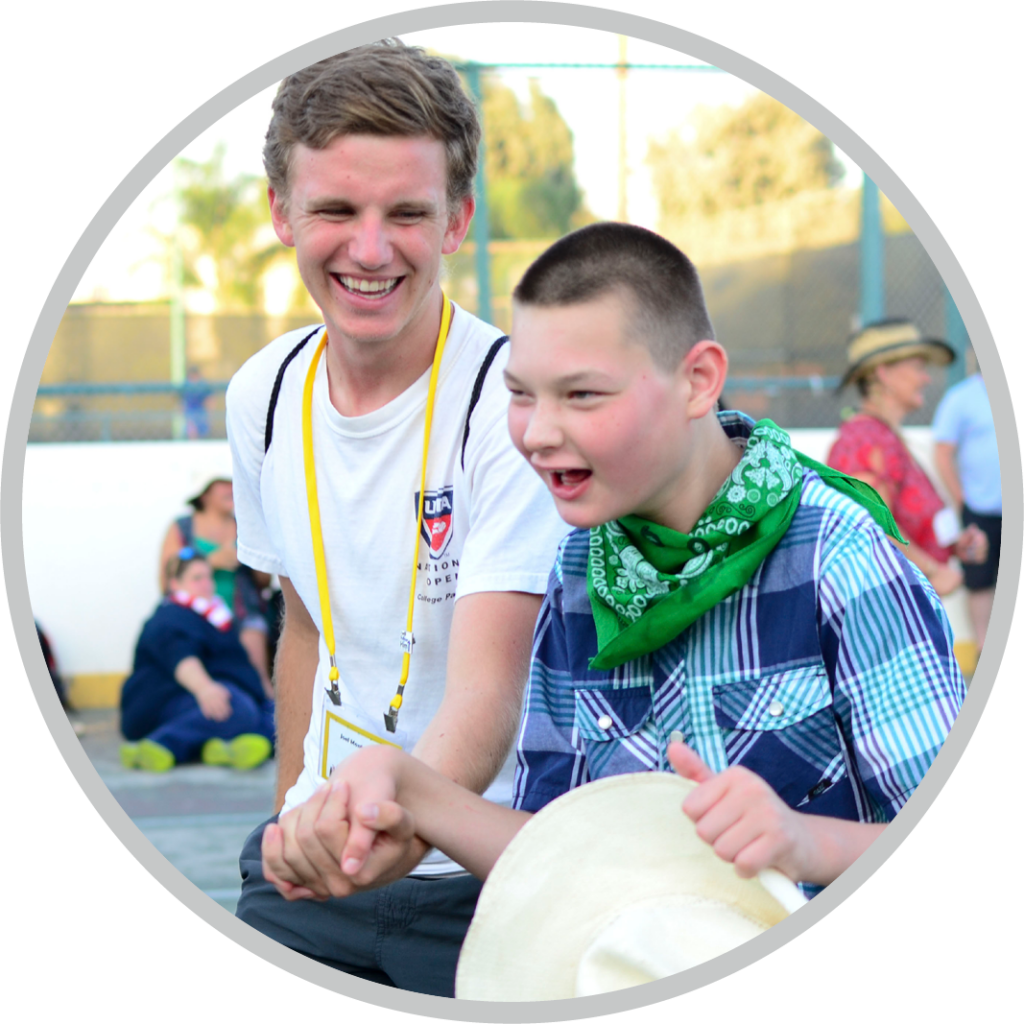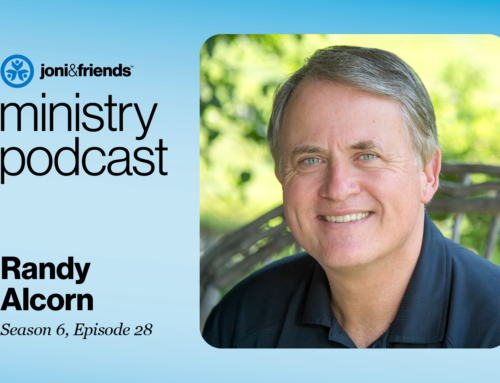Ways to Become a More Disability Friendly Church
Subscribe to the Joni and Friends Ministry Podcast

“Go out quickly in the streets and alleys of the town and bring in the poor, the crippled, the blind and the lame…. Go out to the roads and country lanes and compel them to come in, so that my house will be full.”
Luke 14:21, 23 (NIV)
Jeb Beauchamp joins the podcast to talk about expanding the reach of the Gospel to people living with disability in the North Carolina area. As an Area Director with Joni and Friends and an ordained pastor, Jeb talks about shifting culture and overcoming barriers in churches to help people with disabilities experience true belonging.
Jeb also shares about biblical counseling, and how the Word of God can speak to every person, regardless of life circumstances.
Why do churches struggle to become “disability friendly”?
“No Christ-honoring pastor wants their church to be disability unfriendly,” says Jeb.
Despite the best of intentions, churches often struggle to become truly disability friendly. Jeb names three big challenges he has seen among pastors and churches as they seek to serve and integrate people living with disability:
- Church culture does not focus on including people with disabilities: When a church culture doesn’t acknowledge the realities of disability, needs can get overlooked. Staff and congregation members may not see the barriers that exist within their environment and programming—the youth group moves its meeting to the second floor; the font is too small on PowerPoint slides.
- Pastors and church staff are overwhelmed: When a pastor feels the need to do “it all” in a church, discouragement can set in, and ministry suffers.
- Pastors feel isolated: Joni and Friends sees many pastors feeling isolated and lacking support. They need community and help to envision and execute disability ministry well.
“I love that the Joni and Friends approach to mobilizing churches is through the ministry relations teams. And they are sent out to offer greater disability awareness through church training resources and ongoing encouragement to pastors [to help them] keep their eyes on Jesus to keep going.”
Jeb
Reaching People through Biblical Counseling
Jeb shared that a recent local survey found that less than five percent of churches in the Charlotte area have a disability ministry. He and his team are using biblical counseling to reach more people living with disability in their community.
In addition to running a biblical counseling ministry at his church, Jeb has led his office to create a list of Christian counselors in the area to provide to families navigating disability. One local seminary even offered to provide free biblical counseling to these families.
“There’s a movement. There is something happening because soul care is so important, especially for families affected by disability. And so when I’m in the counseling room and when I’m doing biblical counseling… the presenting issues often center around the challenges and the burdens of living with disability. And those challenges and burdens, they show up in the marriage, they show up in parenting, they show up personally,” says Jeb.
In biblical counseling sessions, people living with disability often come with hard questions—why doesn’t God heal me? Why has this happened to me? Does God care about my suffering? A biblical counselor will draw a person back to Scripture to see what God has to say.
As Jeb says: “I get to bring God into it and say, ‘Okay, God is here. What do you think God is doing? Because sometimes our circumstance gets so big, and it occupies so much of our life and our mind. And our view of God gets smaller and smaller, and our hope starts to suffer… Part of that first step of crisis counseling is reminding someone: ‘God is still good. He’s still here. He’s still powerful. He’s still sovereign.’”
Reaching Families with the Gift of Respite
“When [Jesus] saw the crowds, he had compassion on them, because they were harassed and helpless, like sheep without a shepherd. Then he said to his disciples, ‘The harvest is plentiful but the workers are few. Ask the Lord of the harvest, therefore, to send out workers into his harvest field.’”
Matthew 9:35–38
Among families living with disability, respite ranks as one of the top unmet needs. Exhausted parents and caregivers often don’t get breaks or refreshment because of the ongoing demands of disability. This need presents an opportunity for the church to demonstrate the hands-on love of Jesus to families, and bring people into the body of Christ.
Jeb described regular respite nights being held by a local church in partnership with Joni and Friends:
“These respite nights are community centered, for moms and dads to give their kids an amazing four hours of Christ-centered programming. And mom and dad can go get a haircut, do errands… I overheard a dad come back with a big smile on his face after one of these events. And he said, ‘My wife and I went on our first date in nine years.’”
How can your church become more disability friendly?
Whether you are a pastor, a parent of a child with a disability, or simply part of a congregation who wants to make a difference, Joni and Friends can help you make your church and community more welcoming to people living with disability.
You can be part of bringing the Joni and Friends vision to life: A world where every person with a disability finds hope, dignity, and their place in the body of Christ.

Explore Resources for Your Church
Through training and resources, we can equip you and your church with practical tools for including people of all abilities into the life and ministry of your church, helping people with disabilities find their place in the body of Christ.








